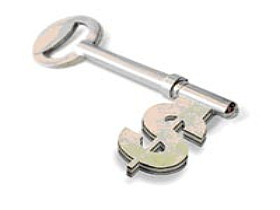What's Hot: Did January Mark The Bottom For The DC-Area Housing Market? | The Roller Coaster Development Scene In Tenleytown and AU Park
 Money Up Front: Earnest Money Deposit Explained
Money Up Front: Earnest Money Deposit Explained
✉️ Want to forward this article? Click here.

Most first-time homebuyers know they need to prepare themselves for homeownership by saving money for a down payment, and improving their credit score so they can qualify for a low interest rate mortgage. But one more item should be on that to-do list: Making sure they have liquid funds available for an “earnest money deposit” when they make an offer on a home.
An earnest money deposit is a deposit handed over to the sellers (or their real estate agent) when a contract is signed and offered to purchase a home. The “earnest” part comes in because the deposit is meant to signify the seriousness of the buyers. (This deposit is not the same as the down payment, but it will be applied to the down payment at settlement.)
There is no hard and fast rule when it comes to how much of an earnest money deposit buyers should offer. A real estate agent can provide advice on an amount, but the decision ultimately rests with the buyers.
The first consideration should be how much of your money is immediately accessible (usually in a checking or money market account) because you need to be able to write a check the day you make the offer. Next, find out if you are in a situation in which multiple offers are being made on a property. Your offer will be more likely to be accepted if you include a substantial earnest money deposit.
Typically, an earnest money deposit is about 1 to 5 percent of a buyer’s offer. Buyers putting 20 percent down are more likely to include a deposit of between 5 to 10 percent of the offered price. The earnest money deposit will be held in escrow until the settlement date.
One thing to remember about the deposit is that it may have to be forfeited if the buyers do not fulfill their part of the contract. Work carefully with a real estate agent to make sure you understand all the terms of the deal and meet your end of the bargain. Of course, if the offer is rejected or the sellers do not fulfill their end of the contract, the deposit will be returned to the potential buyers.
See other articles related to: condo buying, home buying
This article originally published at https://dc.urbanturf.com/articles/blog/money_up_front_earnest_money_deposit_explained/1503.
Most Popular... This Week • Last 30 Days • Ever

As mortgage rates have more than doubled from their historic lows over the last coupl... read »

The small handful of projects in the pipeline are either moving full steam ahead, get... read »

The longtime political strategist and pollster who has advised everyone from Presiden... read »

Lincoln-Westmoreland Housing is moving forward with plans to replace an aging Shaw af... read »

A report out today finds early signs that the spring could be a busy market.... read »
DC Real Estate Guides
Short guides to navigating the DC-area real estate market
We've collected all our helpful guides for buying, selling and renting in and around Washington, DC in one place. Start browsing below!
First-Timer Primers
Intro guides for first-time home buyers
Unique Spaces
Awesome and unusual real estate from across the DC Metro













